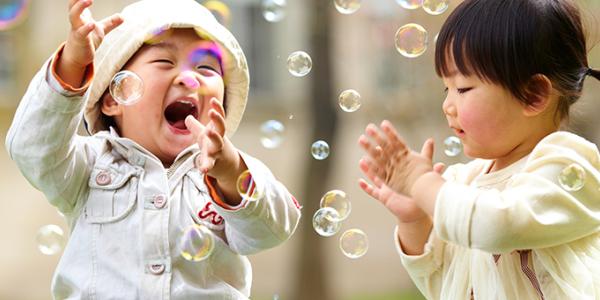Six Key Themes in Early Childhood Science: The NAEYC ECSIF presents at a science education conference

“It is never too early to introduce STEM topics to children. I do a weekly STEM program at my library geared for 3 to 5 year olds,” -Christina, Librarian on HELLO.
Science, technology, engineering, and math (the STEM fields) have always been a part of high-quality early childhood education, even though they may have been called by different names, like cooking, carpentry, or art. Today, early childhood educators have many resources for engaging children in inquiry and supporting the “Four Cs”—critical thinking, communication, collaboration, and creativity—through STEM learning.
Members of the NAEYC Early Childhood Science Interest Forum, which promotes developmentally appropriate science education in early childhood, were honored to share some great STEM resources recently at the National Science Teaching Association (NSTA) 2019 Elementary Extravaganza “share-a-thon” conference session in St. Louis. The Interest Forum’s tables were a popular attraction!
Even better, members of the Interest Form felt like children in a candy store—or naturalists in the woods! We had so many opportunities to learn at this fabulous NSTA session. Here are some of the most powerful ideas shared:
-
Bring the joy of inquiry into the classroom, even with the youngest learners. Science learning begins at birth and all early childhood educators are science educators.
-
Help all children see themselves as scientists. Science learning is for all children (a point emphasized by the presenters from the University of Washington’s Institute for Science + Math Education; see Practice Briefs #54 #59) and when childhood educators build positive relationships with children, their learning increases (in science and all other areas).
-
Provide opportunities for children to observe natural phenomena, such as seeds sprouting, water flowing, or wind blowing. Take children outdoors often and encourage them to experience nature and collect data so they can develop their understanding weather events and other natural phenomena.
-
Extend experiences—both out in nature and back in the classroom—with time for discussion and reflection to help children make sense of their observations. “Science talk” helps children think further about their initial ideas.
-
Collaborate with other educators. As we saw at the conference, many early childhood educators know about developmentally appropriate science resources and have trusted sources to share.
-
Be a virtual attendee and learn on your own! There are livestream options at some conferences. Presenters handouts from this year’s NSTA conference are available online at the NSTA site.
The NAEYC Early Childhood Science Interest Forum is open to all NAEYC members—join and contribute on Hello! In addition to starting conversations with educators across the country who love engaging children in STEM activities, members contribute resources that support all educators with immersing children in scientific inquiry. It’s all on Hello--it would be great to see you there too!
Peggy Ashbrook is an early childhood science teacher, mentor, writer, and a co-facilitator for the NAEYC Early Childhood Science Interest Forum . She writes the National Science Teachers Association’s (NSTA) Early Years column in Science & Children and a companion blog (www.nsta.org/earlyyears) and is the author of Science Learning in the Early Years (2016 NSTA Press) and Science Is Simple (2003, Gryphon House). Her favorite place is where the worlds of early childhood and science learning overlap.